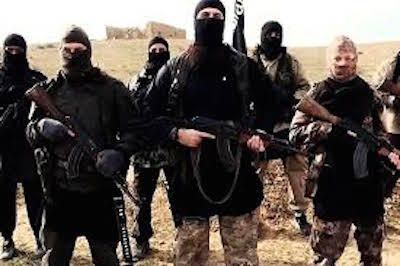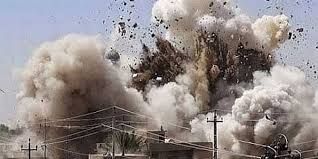Fortunately for the West, ISIS has two significant military vulnerabilities. The first is their open, desert terrain—perfect for Western air attacks against their troop concentrations, military infrastructure, oilfields and transport.
The second is their need to physically hold territory as a caliphate—a decision absolutely central to its mission and messages even if it presents a serious military liability. If ISIS loses their grip on the territory they now control in Syria and Iraq, there is no caliphate. Take away their command of territory, and no one owes allegiance to the caliph.
There would still be freelance jihadists who could and would continue to attack in the West and behead their enemies. But the propaganda power of the caliphate would disappear, and with it the demanded religious duty to immigrate and serve it. ISIS would lose its power.
Western and, to some extent, Russian airstrikes are successfully exploiting the bombing vulnerabilities. Remember the Gulf War scenes of absolute carnage when American warplanes caught fleeing columns of Saddam Hussein’s troops in the open? Any significant massings of ISIS fighters would suffer the same fate, so their ability to maneuver is severely constrained.
Bombing has real costs for the West. Airstrikes have to be reconnoitered and technology has its limits, as evidenced in errant drone strikes. We need a limited number of our own special forces troops to help pick targets and guide the bombs. One of them has already been killed and there will be more.
The costs of a caliphate. By capturing towns and cities, ISIS takes on significant expenses. They must pay the costs of maintaining minimum infrastructure to avoid massive defections of the people living under their control. And since they don't have nearly enough qualified personnel in their own ranks to staff hospitals, city halls and the like, they must call for experienced people to do the jobs—and pay them. But that call has come up short, according to people who have fled their territory. ISIS is struggling to find people able to run oil equipment, fix electricity networks and provide medical care.
ISIS has been largely paying its bills with loot stolen from banks in the towns and cities they've conquered. But that can’t last forever. Increasingly ISIS is dependent on revenues from oil pumped from the fields in their territory and sold to smugglers based in Turkey and elsewhere. But that oil can only be moved from wellheads by slow-moving trucks—easy targets for Western warplanes.
The caliphate project is now in some distress, according to interviews with people who have recently fled. Under pressure from airstrikes by several countries, and new ground offensives by Kurdish and Shiite militias, ISIS is beginning to show the strain. Some of their fighters have taken pay cuts, while others have quit and slipped away. Important services have been failing because of poor maintenance. And as its oil business has suffered under air attacks, ISIS has resorted to ever-increasing taxes and tolls imposed on its squeezed citizens.
Given everything we know about the Islamic State, continuing to slowly bleed ISIS through airstrikes and proxy warfare appears the best military option. Neither the Kurds nor the Shia will ever subdue and control the whole Sunni heartland of Syria and Iraq—they are hated there, and they have no appetite for such an adventure anyway. But they can help us keep ISIS from fulfilling its mission to expand. And with every month that it fails to expand, it resembles less the conquering state of the Prophet Muhammad than yet another Middle Eastern government failing to bring prosperity to its people.





